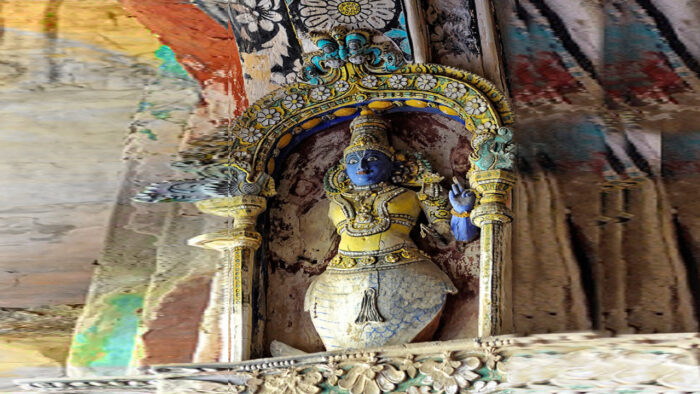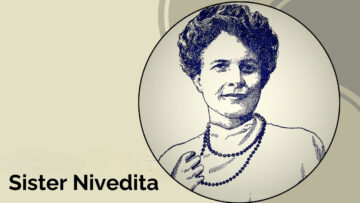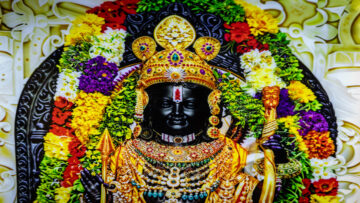The Constituent Assembly of India had a momentous task before it in 1947; it had the duty to design the polity of the nascent Indian state. There were many choices to be made, like the form of government, role of the state in religious matters, the rights and duties of the citizens. There were numerous models and examples from around the world as well as from India’s own history. Within the Constituent assembly itself there were calls to implement the Gandhian vision of a confederation of Panchayat Republics, a highly localised and decentralised state. There were also calls to return India as a civilizational state to its cultural roots, and form a uniquely cultural polity based on ancient Indian treatises and values. These clarion calls were all based upon the premise that India could give a unique answer to the problems facing the materialistic world, by forming a spiritually elevated social collective, that the Indian model of governance could become an alternative solution to the problems plaguing the human civilisation. Most definitely, a government organised around sovereign Panchayats, or a government based upon ancient values and principles would have been a novel experiment in the annals of human history. But our founding fathers in the Constituent Assembly chose to rely on the model inherited from the British, and further adapted the system by incorporating other elements from modern contemporary constitutions around the world. The Constitution definitely had a bold socio-economic vision for transformation and caused the deep-rooting of democracy in India. But, could we have tried a different path of governance? Is that alternative path still open to India? Whether India as a civilizational state can become the spiritual Vishwa guru to the world? A stellar example from India’s own ancient past can be illustrative in this regard.
Asoka and his Dharma
The most unique political model can be traced back to the ethos of the first Indian Emperor, Asoka. The Mauryan Empire that he had inherited was the first such integrated polity in the Indian subcontinent. Emperor Asoka is famously known for the bloodied conquest of Kalinga (modern Odisha) and his consequent humanist realisation of the futility of war. He embarked upon an unprecedented path of embracing his citizenry with compassion and enunciated a value-oriented polity. The Emperor declared that all his future conquests will be through Dharma.
Dharma defies precise definition in India, it can be said to embody values for a virtuous human life. For Asoka, it was a compilation of various social norms requiring righteousness and dutiful life. The principles were religiously neutral and designed in a manner to be acceptable to all communities. Dharma may be said to be an ethical code that mandates social responsibility and cohesiveness amongst people. Asoka’s precepts of Dharma included pluralist ethos of tolerance towards all religions, respect towards elders, compassion and philanthropy, love for animal life, etc. Various edicts specify restrictions on animal sacrifice, intoxicants, fair treatment of prisoners, abolition of death penalty and such. It was unknown till then for a monarch to care for his subjects in such a paternalistic manner. Asoka sought to unify the Empire under the banners of Dharma, and wielded the instrumentalities of the State for achieving this. A cadre of State functionaries known as Dharma-Maha-Matras were spread across the Empire to disseminate and propagate values of Dharma and also enforce them. They directly reported to the Emperor, and not to the provincial or city governors. These state functionaries eventually evolved into almost a monastic order. Edicts and pillars were constructed at all the significant points within the Empire, acting as a direct communication of Dharmic values from the Sovereign to his subjects. Asoka himself replaced the royal hunting expeditions with Dharma-yatras to directly propagate the value system amongst his subjects. The various tenets of Dharma like the mandate to respect elders, adhere to non-violence, cultivate a charitable mind and attitude, etc. indicate that the moral code of Dharma was a secular and liberal way of life acceptable to his subjects from various religious sects. The preferred mode of enforcement of the Dharmic values was also apparently by way of dissemination, education and persuasion.
It has been historically argued that the Asoka’s policy of Dharma was politically motivated to ensure peace within the Empire riveted by contemporaneous religious divisions, that the state required an ideology to be united. It was definitely an articulation of humanist values, and reflected the need for ethical and moral principles in a polity. Unfortunately, the ideology of Dharma did not survive its progenitor.
This political experiment of Asoka has many unique lessons. It was perhaps the first attempt to unify a diverse empire through a civic humanist ideology that transcended other religious and social divisions. Further, a branch of government was created to propagate and implement the vision of an ethical and virtuous life. The goal of the emperor seemingly was to stabilise the society and inculcate a system for ensuring well-being among the citizenry. This lofty goal and such bold attempts at reforming governance elevate Asoka the Great to the status of being a Philosopher-king. Another great Indian also attempted to infuse values into politics in the 21st century and articulated an alternative model of governance for the nation fighting against foreign rule.
This model rests on a humanist vision of ideals, and social co-operation that seem rather rational and obvious to its ideologues, but utopian and impractical to everyone else. Does the biological basis of our social living necessitate a harmonious adherence to values and ethics?
Dharma Nyaya philosophy
Understanding the purpose of life is a difficult pursuit. The simple biological premise can be that, the purpose of life is to survive and procreate. This purpose is seemingly evident to us from the living beings around us. This purpose does not elude human beings; we do try to survive and procreate as well. The key distinction is that, we try to discern a greater meaning and purpose to life. This purpose need not deviate from the core biological aim of life; rather it can be crafted to contribute to the higher chances of survival of our species itself.
At a higher level, the biological goals of life are fulfilled by living beings around us in myriad ways. We see organisms that are parasitic, that prey on another organism to survive and reproduce. There are more common and direct prey-predator relationships wherein one has to die to nurture another. Even certain modes of reproduction, require the death of a mate; the female spider commonly preys upon the male after sexual consummation to generate energy for the consequential acts of reproduction. In the case of honey bees, hordes of sterile bees toil for their queen to ensure the survival of the community as a whole. All these biological vagaries do not provide a keener insight to the purpose of life for us, humans. Rather, it merely shows natural evolution of certain norms and practises suited for unique circumstances of the lifecycles of certain organisms. Do these norms matter to how humans should lead their lives? Are these “natural” norms a guiding point for us, too?
Social living is such an evolutionary norm. This is obviously not unique to humans. Many organisms interact with each other and co-ordinate their behaviour to certain natural social norms to ensure their survival and that of their progeny. Many animals live in packs and so do we. If we progressively reduce the goal behind such social living, it will lead us to disappointing results. There is no love between social organisms or even between mates; rather such behaviours are biologically engineered through evolution to merely ensure higher chances of survival. This is not evil or wrong; it is merely factual. But it does impinge on us, humans, who have always sought to understand and abstract on the greater meaning of life, and our role in this Universe. Nonetheless, naturally occurring tendencies for social behaviour is a key guiding point for what we humans are, and what we can be. Biologically relevant social behaviour is based on a fundamentally anti-individualist stance. Altruistic or selfless behaviour is expected to contribute to the eventual and greater success of the community at large. The members in the social group may take care of others, though unrelated by kinship; they may share sources of nutrition as well as mates, for reproduction. It is easy to discern social behaviours and their causal contribution to biological success; since it has been obviously tested in the cruel natural filter of evolution. The key question to consider in this context is regarding the perfect social system that can be designed for humans to fulfil their biological as well as other higher abstract goals of life. Shouldn’t we humans take care of other humans tenderly? How best to design the social value system to ensure successful progeny of human life? Considering that we understand the greater biological purposes of life, shouldn’t we take care of our earth as a biome, and ensure the survival of all forms of life in this world?
The legend of Matsya Avatar in ancient lore is an interesting parable of how human social values have a potential for distinction. In the tale, when the primeval King was taking a bath in the sea, a fish approaches him and requests him to protect him from his predators in the sea. The King, views his Dharma as being that of protecting all those who seek refuge, and carries the fish in a small vessel back to his vessel. The fish grows into gargantuan size, and requires transference to a bigger vessel and even the royal pool, and finally the King is forced to release the gigantically grown fish back into the sea. It is revealed that the fish is the Matsya Avatar of God, and delivers a prophecy and the lore proceeds. It is pertinent to note that the value of Dharma or Dharma Nyaya is said to have seeded in this parable. It is the Matsya Nyaya or the natural law that big fishes eat smaller fishes, and in turn are eaten by bigger fishes themselves. The King’s act of protecting a prey from its natural predator, and thusly violating this natural law begets the Dharma Nyaya, where the downtrodden are protected as a principle of righteousness. The tale narrates that only humans are capable of such a righteous decision to save a helpless prey from a predator selflessly. Dharma Nyaya pervades into human society too. It is of course possible for humans to live in a system where might dominates, but we choose to design righteous values and norms that equally protects all.
Social norms of Dharma will entail morals and values that will inculcate values of empathy, compassion and such. There is a clear paradox of plenty and starvation in our society, where obesity and starvation co-exist as raging pandemics. It would be unnatural to see a wild animal hoard food in the manner that we civilised humans do, the basic economic question of production and distribution seems to glaringly fail when it comes to the most essential requirement for life, nutrition. It is economically seen to be rational for producers to burn food to stop the falling food prices, while starvation spreads across. Such unnatural behaviour is held to be the normal functioning of the free economic market. Without going to the causality of these phenomena, it can be clearly stated that in the rising abstraction of human lives, essential social values have been lost. What is the eventual goal of human civilization, all the innovations, if not to ensure a comfortable life for all? Sometimes, we have really forgotten why the fiction of money and property was created, it was to make human lives easier; but now we value that more than human life. Are we not sufficiently social?
So how best to design the principles of Dharma, what can be the ideal social norms for human social living. It is of course not that humans are presently or have ever lived in a purely chaotic and barbaric asocial atmosphere. Rather we co-operate and forge a social contract to ensure a common utilitarian life. Culture plays a critical role in this, with religion forming a traditional locus for human organisation. Kinship begets family and community, with regional, cultural and linguistic ties forging bigger social groups like nations. To attain specific social and economic objectives, individuals may seek to act collectively through volunteer co-operatives or in the form of altruistic trusts or profit seeking corporation of investors. These different forms of human social organisation require values and ethics in the form of a social lubricant to under-write their basis and fruitful functioning.
Is it then possible to have a branch of society and state, dedicated to spiritual uplift and well-being of the citizens?
Constitutional path for transformation
The Constitution of India is not bereft of values. The vast majority of its provisions seek to establish democratic, representative branches of executive and legislative government on Union, State and local levels along with meritocratic and independent judicial, electoral branches and an integrated civil service. These norms are adapted from the British and other liberal modern constitutional traditions. The Constitutional values and morality may be found in the Preamble, Fundamental Rights, Directive Principles of State Policy and Fundamental duties. These provisions envision India as a modern republic with empowered citizens, who have various civic rights and freedoms, and are normatively obligated to follow certain rational duties. The State is also mandated with ensuring the socio-economic development of the nation. These Constitutional values are mostly rational, fair and based on sound political, economic and social principles. But the Constitution does not per se, seek to spread civic awareness about any values, spiritual or temporal, and it was quite early on, commented that a functioning democracy requires political maturity and sagacity among its populace as well. The Constitution itself did not delve into ethical or spiritual matters, except for restraining regressive socio-religious norms and providing for the state management of certain religious institutions.
Ethical and moral matters are traditionally seen to be the preserve of religious domain, and religious has been separated from the government in all modern states. This is a diametrical reaction to the erstwhile systems wherein religion played a key role in the affairs of the State. Monarchies were legitimised by religion and associated ritualism, and this continues to be in force in certain states like the United Kingdom, Saudi Arabia, etc. In Monarchies with state religions, usually the head of the State is simultaneously the head of the religious sect as well. The British Queen is simultaneously the “Defender of the faith” and the Supreme Governor of the Anglican Church. This religious arm of the Government may be said to have a sobering spiritual social influence.In the quasi-theocratic Republic of Iran, the doctrine of “Rule by Jurist” is implemented in the Constitution, wherein an assembly of Islamic jurists elect the Head of the State or the Supreme Leader who is to be well versed in the religious and ethical values. All actions of the State are constitutionally required to be in abidance with the higher divine law. There are various arms within the government to enforce the code of virtuous conduct. This example also underlines the importance of choice of the right value system to ensure that the human condition is bettered and not regressively restrained and diminished.
The Kingdom of Bhutan has a constitutionally recognised spiritual and ecclesiastical arm. This is in line with the traditional Tibetan form of dual government that encompasses spiritual and temporal domains of the polity. Buddhism is recognised as a key component of heritage in Bhutan and values like peace, tolerance and compassion are sought to be propagated. There is an endeavour to ensure the holistic well-being of the people, and this is also manifested the national goal of focussing on happiness rather than other material parameters.
In India, there are several examples of governmental entities that are mandated with the propagation of certain values and moral systems. The National Integration Council is an example of such institutions which are broad-based, composed of wide gamut of political personalities and representatives of civil society with the goal of advancing values of national unity against social divisions. The Council under the leadership of the Prime Minister of the country seeks to work towards strengthening the unity and integrity of the nation, by dissemination of these values among the masses. Another example of how incremental changes can be made to foster value system within the Government is the induction of “Ethics, Integrity and Aptitude” as a compulsory subject in the Civil Service Examination; seeking to test prospective candidates for public service on their ethical moorings. The Government and its members including both the elected representatives as well as the civil servants are varyingly required to adhere to conduct rules that include values of honesty, integrity and allegiance to the constitution, amongst other legal obligations. The National Service Scheme is an example of how the Government motivates the youth towards voluntary public service, by imbibing in them values of altruism, integrity, compassion, and perseverance. The National and State level Human Rights commission depict an example of a pillar of state credited with the propagation of the abstract value system of human rights; defined broadly around the Constitution as well as myriad international covenants and treaties.
The Modern civilisation in fact does revolve around a manifestation of a fundamental value system, the doctrine of rule of law. It is almost universally recognised that all members of the society must abide by the laws. Processes are eked out to ensure that the process of formulating legislations is fair and representative, and that the laws are themselves enforced in a just manner. The judiciary itself, from the local judge to the Chief Justice of the Apex Court constitute a quasi-monastic cadre of judicial officers, dedicated to the cause of law and justice. The attorneys, prosecutors and defenders are also deemed to be officers of the Court of law, all in service of Justice.
The culture of rule of law is indicative of the potential of having a branch of government and society in service to the need for creation and maintenance of social norms for the greater good of all. It is not sought to return to an era where religious norms dominate the affairs of the state, but to explore whether it is possible to induct parallel hierarchy for spiritual well-being and infusion of values and ethics within the state. A key question to answer is whether it should be the pursuit of state to delve into spiritual matters. The Constitution provides for freedom of religion and conscience allowing non-governmental entities to innovate and propagate values and ethical paradigms. Seers like Ramana Maharishi and others have made India into a spiritual beacon for the world. Without diminishing the contribution of these seers, it can be postulated that the State can play a pioneering role in spiritual well-being of the citizens. The Government bears legitimacy, and the polity is seen to be the fount of all other matters social and economic.
The efficacy of values on the social life can be empirically seen in the low crime rate in the Japanese society, which is held to be due to cultural taboo on violence and anger. A rational approach to moral science and education could aid in understanding the psyche of humans and their tendencies. The design of social norms itself will be a pursuit that requires a consultative approach, ideally that of a consensual open assembly of seers akin to that of the Ancient Buddhist Sangha, known for its democratic conduct. Values of Dharma can be source from all religions, and from ancient treatises as well as modern philosophy. This should be a process, as rigorous as that of legislation. Dharmic values can vary from that of integrity and honesty to that of pluralism, tolerance, compassion and empathy with an overarching sense of righteousness and duty. Scientific psychological and sociological analyses with the support of spiritual leadership can be used to discern appropriate social norms, their mode of dissemination and degree of adoption and enforcement.
Hence, a step forward for India in this regard could be to devise Dharma or Values Commission at the national, state and local level with advisory councils to aid them in devising and disseminating a nourishing social code of ethics. This could be an advisory branch of government that caters to the well-being of the citizenry and the design of a rational moral education and its propagation. The design of such a commission should be broad enough to accommodate representation from the political leadership, spiritual and religious leaders, subject experts on ethics and psychology and also jurists. The function of the Commission could be focussed on providing inputs to the educational framework, to imbibe a value oriented social base for the future citizenry through focussed campaigns as well as volunteering initiatives. The Commission could also be vested with the due to imbibe values within the Government system itself though focussed training of government servants at the Union, State and local levels. Such a branch of government could be the modern progeny of the Ancient Dharma-Maha-Matras.
It is possible to set the endeavour of human life on a harmonious civilizational path by adoption and adherence to social values and norms. The spiritual and cultural traditions of India provide a unique opportunity to India to play a key role in fulfilling this destiny of mankind.
“If the whole of India accepted the eternal law of love, India will become the unquestioned leader of the whole world” – M.K. Gandhi
Feature Image Credit: istockphoto.com
Disclaimer: The opinions expressed in this article belong to the author. Indic Today is neither responsible nor liable for the accuracy, completeness, suitability, or validity of any information in the article.









